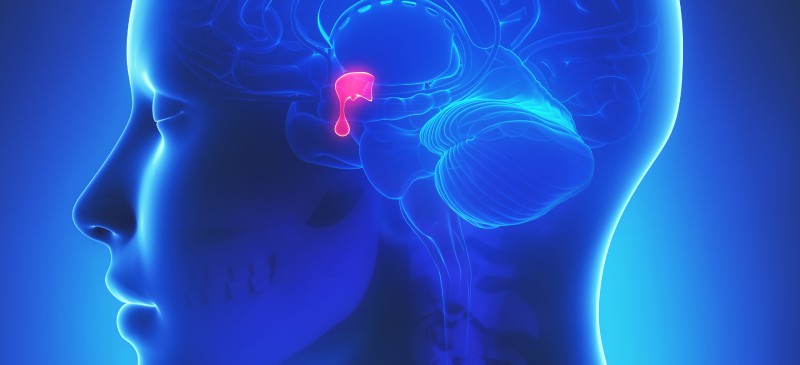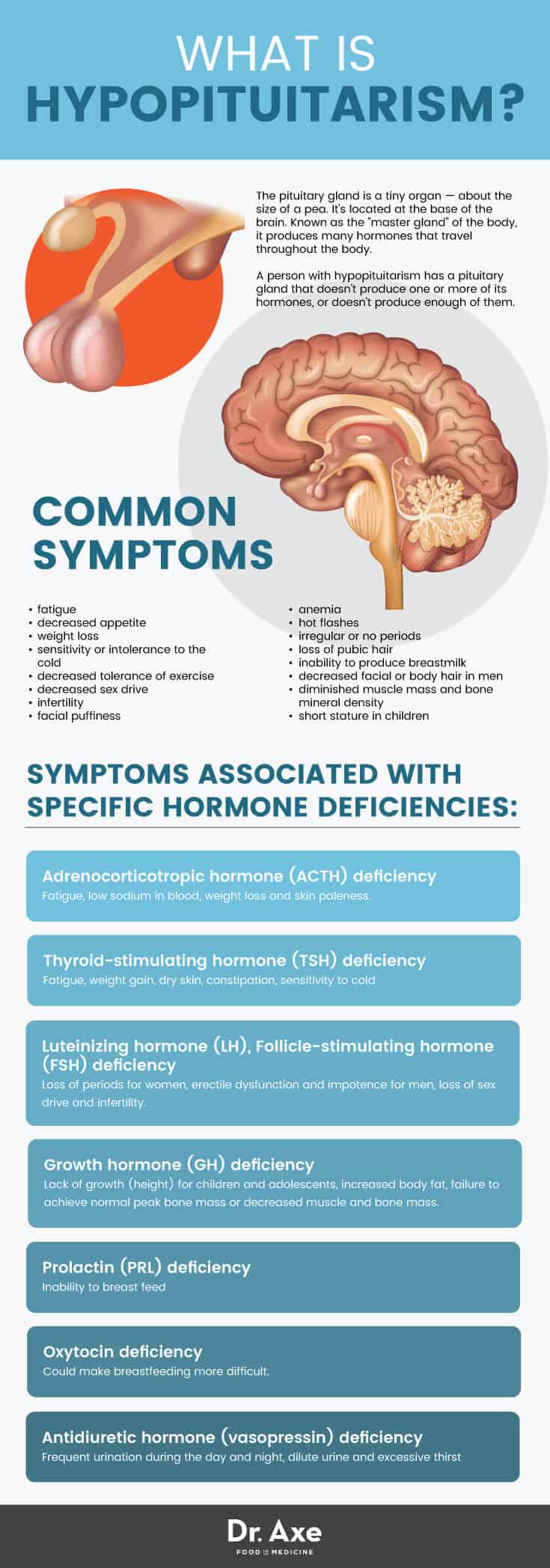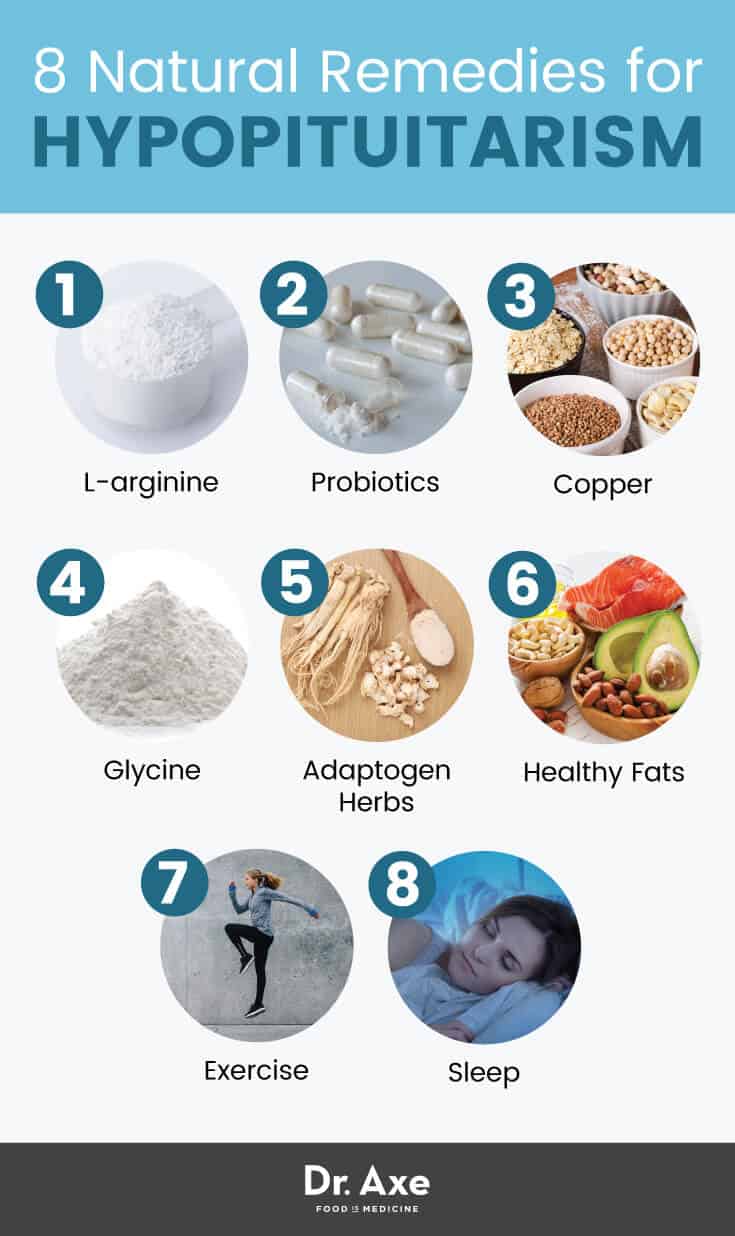This Dr. Axe content is medically reviewed or fact checked to ensure factually accurate information.
With strict editorial sourcing guidelines, we only link to academic research institutions, reputable media sites and, when research is available, medically peer-reviewed studies. Note that the numbers in parentheses (1, 2, etc.) are clickable links to these studies.
The information in our articles is NOT intended to replace a one-on-one relationship with a qualified health care professional and is not intended as medical advice.
This article is based on scientific evidence, written by experts and fact checked by our trained editorial staff. Note that the numbers in parentheses (1, 2, etc.) are clickable links to medically peer-reviewed studies.
Our team includes licensed nutritionists and dietitians, certified health education specialists, as well as certified strength and conditioning specialists, personal trainers and corrective exercise specialists. Our team aims to be not only thorough with its research, but also objective and unbiased.
The information in our articles is NOT intended to replace a one-on-one relationship with a qualified health care professional and is not intended as medical advice.
Hypopituitarism Symptoms, Causes & 8 Natural Remedies
February 27, 2017

The loss of pituitary gland hormone production — also known as hypopituitarism — can be a serious, life-long condition. The pituitary gland is our master gland. It helps to produce many hormones that are necessary for our bodies to function properly. Symptoms for this rare condition can be severe. However, with appropriate treatment, individuals with hypopituitarism should be able to live normal, productive lives. For some people, hormone replacement therapy may be necessary. There are also ways to balance your hormones naturally that can be useful as well.
What Is Hypopituitarism?
Hypopituitarism refers to under-functioning of the pituitary gland. The pituitary gland is a tiny organ — about the size of a pea. It’s located at the base of the brain. Known as the “master gland” of the body, it produces many hormones that travel throughout the body. It directs certain processes and stimulates other glands to produce hormones.
A person with hypopituitarism has a pituitary gland that doesn’t produce one or more of its hormones, or doesn’t produce enough of them. This disorder can affect any number of the body’s routine functions, including growth, blood pressure and reproduction.
According to research published in Postgraduate Medical Journal, the prevalence of hypopituitarism is 45 cases per 100,000 people and the incidence rate is about 4 cases per 100,000 people, per year. Nearly 50 percent of patients have three to five pituitary hormone deficits. (1)
Common Symptoms of Hypopituitarism
Hypopituitarism symptoms are sometimes not obvious and may be overlooked. The severity of symptoms typically depends on which pituitary hormones are low and the extent of hormone deficiency. Some common signs and symptoms of hypopituitarism include:
- fatigue
- decreased appetite
- weight loss
- sensitivity or intolerance to the cold
- decreased tolerance of exercise
- decreased sex drive
- infertility
- facial puffiness
- anemia
- hot flashes
- irregular or no periods
- loss of pubic hair
- inability to produce breastmilk
- decreased facial or body hair in men
- diminished muscle mass and bone mineral density
- short stature in children (2)
Hypopituitarism symptoms depend on which hormone or hormones are missing. Symptoms associated with specific hormone deficiencies are listed below:
Adrenocorticotropic hormone (ACTH) deficiency. Fatigue, low sodium in blood, weight loss and skin paleness.
Thyroid-stimulating hormone (TSH) deficiency. Fatigue, weight gain, dry skin, constipation, sensitivity to cold
Luteinizing hormone (LH), Follicle-stimulating hormone (FSH) deficiency. Loss of periods for women, erectile dysfunction and impotence for men, loss of sex drive and infertility.
Growth hormone (GH) deficiency. Lack of growth (height) for children and adolescents, increased body fat, failure to achieve normal peak bone mass or decreased muscle and bone mass.
Prolactin (PRL) deficiency. Inability to breast feed
Oxytocin deficiency. Could make breastfeeding more difficult.
Antidiuretic hormone (vasopressin) deficiency. Frequent urination during the day and night, dilute urine and excessive thirst (3)
The progressive loss of pituitary hormone secretion is usually a slow process. It can occur over a period of months or years. However, occasionally hypopituitarism does start suddenly with a rapid onset of symptoms.
Generally, growth hormone is lost first. Then luteinizing hormone deficiency occurs. The loss of follicle-stimulating hormone, thyroid stimulating hormone, and adrenocorticotropin hormones and prolactin typically follow much later. (4)

Hypopituitarism Causes and Risk Factors
A number of factors or health conditions can cause hypopituitarism. These include diseases of the pituitary gland or diseases of the hypothalamus that cause diminished secretion of hypothalamic releasing hormones. These hypothalamus diseases reduce the secretion of corresponding pituitary hormones.
Certain tumors can also affect pituitary gland function; this includes brain tumors, pituitary gland tumors and hypothalamus tumors. As a tumor gets bigger, it can compress and damage pituitary tissue, thereby interfering with hormone production. The most common cause of hypopituitarism is a pituitary tumor, also known as a pituitary adenoma. A pituitary tumor is almost always benign. However, it puts pressure on the rest of the pituitary gland. It also limits or even destroys the pituitary gland’s ability to produce hormones appropriately.
Your pituitary gland may also stop producing one or more of its hormones because of a traumatic injury. This can include brain surgery, a brain infection or a head injury.
Diseases caused by inflammation, impaired immune function or abnormal growth of tissue can cause the pituitary gland not to work properly. (5) This includes infections of the brain, such as meningitis, infections such as tuberculosis, syphilis and mycoses, and the following inflammatory diseases:
- Sarcoidosis — a disease involving an abnormal collection of inflammatory cells that form lumps known as granulomas.
- Langerhans cell histiocytosis — when abnormal cells cause scarring in numerous parts of the body.
- Hemochromatosis — a disease in which too much iron builds up in the body.
Other health issues that may lead to hypopituitarism include: a severe loss of blood during childbirth, which may cause damage to the front part of the pituitary gland (this is known Sheehan’s syndrome or postpartum pituitary necrosis), genetic mutations resulting in impaired pituitary hormone production, radiation damage and diseases of the hypothalamus.
Sheehan’s syndrome is a condition that affects women who lose a life-threatening amount of blood in childbirth and/or don’t have enough oxygen after childbirth. It is one of the most common causes of hypopituitarism in both underdeveloped and developing countries. (6)
Various studies have also looked into the effects of radiation damage and its link to hypopituitarism. Data shows that with low radiation doses, growth hormone deficiency usually occurs in isolation in about 30 percent of patients. With higher radiation doses (30 to 50 Gy), the incidence of growth hormone deficiency can reach 50 to 100 percent of patients. Researchers have also found that with higher dose cranial irradiation or following conventional irradiation for pituitary tumors, multiple hormonal deficiencies happen in 30 to 60 precent of patients after ten years of follow-up. (7)
Conventional Treatment
Research shows that hypopituitarism is treatable. A patient with this condition should be able to perform normal activities as long as the appropriate hormonal therapy is used consistently and properly.
Hormone replacement therapy regulates circulating hormones, restores normal physiology as closely as possible and eliminates symptoms of hormone problems. To treat hypopituitarism, the replacement of deficient hormones is required for life. This can be discouraging for patients who resist long-term therapy because of the fear of adverse effects. One rule of hormone replacement therapy is that no one dose will suit every patient. Because of this, when hormone replacement therapy is prescribed, the patient must be seen regularly to check see how they are responding to the treatment, and to change the dose if needed. (8)
Hormone replacement medications may include:
- cortisol replacement therapy (some doctors prescribe prednisone instead of cortisol)
- thyroid hormone (levothyroxine)
- sex hormones (estrogen and progesterone for women and testosterone for men)
- human growth hormone therapy
- antidiuretic hormone therapy (desmopressin)
According to research published in Expert Opinion on Pharmacotherapy, lifelong therapeutic replacement of target hormonal deficiencies is necessary to avoid potentially life-threatening complications of hypopituitarism. But, there may be problems associated with administration and routine monitoring of this treatment. An ongoing challenge is to create and manage a helpful plan of tailoring hormonal replacement regimens for individuals in order to avoid morbidity and mortality associated with hypopituitarism. (9)
Although the goal of hormone replacement therapy is to enable the patient to live a normal life, there are some risks involved in this type of therapy. Hormone replacement at doses that are higher than needed, especially in the case of cortisol, may harm the heart, bones and other organs. On the other hand, too low a dose of cortisol increases the risk of adrenal insufficiency, which is why patients must take additional cortisol when they are in stressful situations. (10)
Some medications, like human growth hormone replacement, may have side effects. These side effects include ankle swelling, joint aches and an increase in blood sugar levels.
People who have hypopituitarism a long time have a slight shorter life span due to vascular causes, such as heart attacks and stroke, and infections. Although the reasons for this are not clear, patients with hypopituitarism should be screened for additional cardiovascular risk factors. They should also take steps to control their risk of developing cardiovascular issues. (11)

8 Natural Remedies for Hypopituitarism
1. L-arginine
L-arginine is a type of amino acid that stimulates the production of certain hormones. These include especially beneficial growth hormones and insulin. L-arginine can help to reduce the symptoms of hypopituitarism, such as hair loss. It can also help to balance the body’s fluids, heal wounds, boost sperm production and allow for blood vessel relaxation.
A 2005 study published in Growth Hormone and IGF Research found that 5 to 9 grams of oral arginine caused a significant growth hormone response, which started approximately 30 minutes after ingestion and peaked approximately 60 minutes after ingestion. (12)
To naturally help your body make and use more L-arginine, eat clean sources of protein. These include cage-free eggs, cultured yogurt, grass-fed beef, pasture-raised poultry, liver and organ meats, wild-caught fish, walnuts and almonds.
2. Probiotics
The gut microflora has metabolic effects. This is why they are sometimes given to preterm infants. Research shows that young children who receive probiotic supplementation may achieve faster growth. (13) Research also suggests that probiotics cause significant elevations in growth hormone and testosterone levels in animals. (14)
Aside from taking a daily supplement, use probiotic foods to boost your intake of these healthy bacteria. This includes kefir, cultured vegetables, cultured yogurt, raw cheese, kombucha, apple cider vinegar and miso. At the same time, it’s important that you steer clear of foods that can cause damage to your gut. These include processed foods, hydrogenated oils and added sugar.
3. Copper
A severe copper deficiency may harm the body in multiple ways, including slowing growth. Research shows that adequate intake of copper and other micronutrients is needed for childhood growth promotion. Copper plays an important role in bodily growth and repair. (15) The body uses copper frequently and it cannot store the mineral in sufficient amounts. Eating copper-rich foods like nuts, seeds, wild seafood, beans, liver and oysters can help you to prevent a copper deficiency and maintain hormone balance.
4. Glycine
Glycine is an amino acid that plays a role in the production of human growth hormone. Studies show that glycine increases growth hormone levels. Evidence is mixed about its effectiveness for people with an existing growth hormone deficiency. A 2003 study published in Nutritional Neuroscience involved 42 healthy participants who received either five grams of a nutritional supplement containing glycine, glutamine and niacin, or placebo, twice daily for three weeks. The nutritional supplement containing glycine increased serum growth hormone levels by 70 percent relative to placebo. (16)
5. Adaptogen Herbs
Adaptogen herbs help to balance, restore and protect the body. They respond to any influence or stressor, normalizing your physiological functions. Research shows that adaptogen herbs have positive benefits on the reproductive health of both men and women. They can improve fertility and sexual desire. Adaptogens may also have beneficial effects on the cardiovascular system, helping to protect the heart and regulate blood pressure. This is important because people with hypopituitarism are at a greater risk of death due to cardiovascular issues. (17)
Some of the most powerful adaptogen herbs include ginseng, holy basil, rhodiola, ashwagandha and astragalus root. Because these herbs affect stress hormones, you should only use them under the care of your healthcare provider. This is especially important if you are already on hormone replacement therapy.
6. Healthy Fats
Eating healthy fats, such as coconut oil, avocados, grass-fed butter and wild-caught salmon, help to balance your hormones naturally. The body needs short, medium and long-chain fatty acids to create hormones. These essential fats are not only fundamental building blocks for hormone production. They also reduce inflammation and improve heart health. (18)
7. Exercise
One of the many benefits of exercise is its ability to increase growth hormone prevalence. Research conducted at Syracuse University suggests that exercise is a very potent stimulator of growth hormone release. There is considerable research documenting the dramatic rise of growth hormone. Studies suggest that exercise can increase growth hormone levels by 300 to 500 percent. (19)
8. Sleep
Adequate sleep, which means 7 to 8 hours every night, is essential for hormone balance. Your hormones work on a schedule. The body regulates cortisol levels in the middle of the night. This helps to give your body a break from your flight or fight stress response. Sleep helps to keep stress hormones balanced. It also helps to build energy and allow the body to recover from stress properly. (20)
Precautions
Hypopituitarism can be a life-threatening condition if it’s not regulated properly. Natural remedies should always be used under the care of your doctor. For some people, hormone replacement therapy may be a needed treatment.
Final Thoughts on Hypopituitarism
- Hypopituitarism is a term that refers to the under function of the pituitary gland.
- The symptoms of hypopituitarism depend on which hormones are deficient. Some common signs include fatigue, weight loss, decreased tolerance of exercise, decreased sex drive and short stature in children.
- A number of factors or health conditions can cause hypopituitarism. These include diseases of the pituitary gland, diseases of the hypothalamus, pituitary tumors and radiation damage.
- Research shows that hypopituitarism is treatable. A patient with this condition should be able to do normal activities as long as the appropriate hormonal therapy is used consistently and properly.
- Some natural remedies for hypopituitarism that may help when used with hormone replacement therapy include L-arginine, probiotics, copper, adaptogen herbs and exercise.


